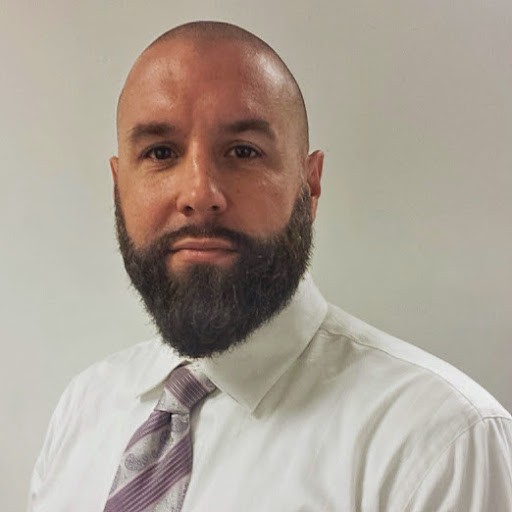Description
This pre-recorded SAMHSA webinar was designed to help mental health professionals understand and address criminal thinking, an essential component of treating people with substance use and co-occurring disorders in the Criminal Justice System.
The presenters are: Michael Chaple, PhD and Joseph Madonia, LCSW-R, CASAC.
This presentation was recorded September 1, 2020.
Target audience: Psychologists, mental health counselors, marriage and family therapists, social workers, addiction counselors, nurses.
This CE program is designated as beginner.
Course Content Area: Counseling Theory/Practice and the Counseling Relationship
There are no known conflicts of interest or commercial support to disclose.
Format: Asynchronous, distance learning. Non-interactive. Recorded audio/video with transcript.
This content has been sourced with approval from SAMHSA.
Do you have questions about this course? Please Contact Us and we'll be happy to help.
CE Approvals
 At Health, LLC is approved by the American Psychological Association to sponsor continuing education for psychologists. At Health, LLC maintains responsibility for this program and its content.
At Health, LLC is approved by the American Psychological Association to sponsor continuing education for psychologists. At Health, LLC maintains responsibility for this program and its content.
 At Health, LLC has been approved by NBCC as an Approved Continuing Education Provider, ACEP No. 6949. Programs that do not qualify for NBCC credit are clearly identified. At Health, LLC is solely responsible for all aspects of the programs.
At Health, LLC has been approved by NBCC as an Approved Continuing Education Provider, ACEP No. 6949. Programs that do not qualify for NBCC credit are clearly identified. At Health, LLC is solely responsible for all aspects of the programs.
 Athealth.com is approved as a continuing education provider by the National Association of Alcoholism and Drug Abuse Counselors, the Association for Addiction Professionals. #148460.
Athealth.com is approved as a continuing education provider by the National Association of Alcoholism and Drug Abuse Counselors, the Association for Addiction Professionals. #148460.
At Health, LLC, Provider #1707, is approved to offer social work continuing education by the Association of Social Work Boards (ASWB) Approved Continuing Education (ACE) program. Organizations, not individual courses, are approved as ACE providers. State and provincial regulatory boards have the final authority to determine whether an individual course may be accepted for continuing education credit. At Health, LLC, maintains responsibility for this course. ACE provider approval period: 5/3/2023-5/3/2026.
It is At Health's understanding that these programs meet the criteria of an approved continuing education program for social work in Arkansas. State and provincial regulatory boards have the final authority to determine whether an individual course may be accepted for continuing education credit.
It is At Health's understanding that these programs meet the criteria of an approved continuing education program for social workers, professional counselors, marriage and family therapists, master's level psychologists, licensed clinical psychotherapists, and alcohol and other drug abuse counselors in Kansas. State and provincial regulatory boards have the final authority to determine whether an individual course may be accepted for continuing education credit.
It is At Health's understanding that these programs meet the criteria of an approved continuing education program for mental health practice and for social work in Nebraska. State and provincial regulatory boards have the final authority to determine whether an individual course may be accepted for continuing education credit.
It is At Health's understanding that these programs meet the criteria of an approved continuing education program for psychologists, pastoral psychotherapists, clinical social workers, clinical mental health counselors, marriage and family therapists, and alcohol and drug abuse counselors in New Hampshire. State and provincial regulatory boards have the final authority to determine whether an individual course may be accepted for continuing education credit.
It is At Health's understanding that these programs meet the criteria of an approved continuing education program for social workers, professional counselors, marital and family therapists, and clinical pastoral therapists in Tennessee. State and provincial regulatory boards have the final authority to determine whether an individual course may be accepted for continuing education credit.
Other jurisdictions may accept trainings offered by At Health, LLC for your continuing education requirements. Restrictions may apply. State and provincial regulatory boards have the final authority to determine whether an individual course may be accepted for continuing education credit.”
.
Page last modified or reviewed by athealth.com on Aug 8, 2025.
Learning Objectives
Following the completion of this course, you will be able to:
- Contrast the different theories that explain criminal behavior
- List the three C's that comprise criminal thinking patterns
- Summarize 3 Cognitive Behavioral Evidence-Based Treatment Programs
- Explain strategies for addressing criminal thinking



 At Health, LLC is approved by the American Psychological Association to sponsor continuing education for psychologists. At Health, LLC maintains responsibility for this program and its content.
At Health, LLC is approved by the American Psychological Association to sponsor continuing education for psychologists. At Health, LLC maintains responsibility for this program and its content. At Health, LLC has been approved by NBCC as an Approved Continuing Education Provider, ACEP No. 6949. Programs that do not qualify for NBCC credit are clearly identified. At Health, LLC is solely responsible for all aspects of the programs.
At Health, LLC has been approved by NBCC as an Approved Continuing Education Provider, ACEP No. 6949. Programs that do not qualify for NBCC credit are clearly identified. At Health, LLC is solely responsible for all aspects of the programs.

Jill (verified owner) –
Stacie (verified owner) –
Michelle (verified owner) –
Krystyna (verified owner) –
Jerome (verified owner) –
LAUREL (verified owner) –
Jaymie (verified owner) –
Lynne (verified owner) –
Janet (verified owner) –
Jill (verified owner) –
Kyle (verified owner) –
Susan (verified owner) –
LARRY (verified owner) –
Whitley (verified owner) –
Mary (verified owner) –
Jennifer (verified owner) –
Donna (verified owner) –
Megan (verified owner) –
Ric (verified owner) –
amy (verified owner) –